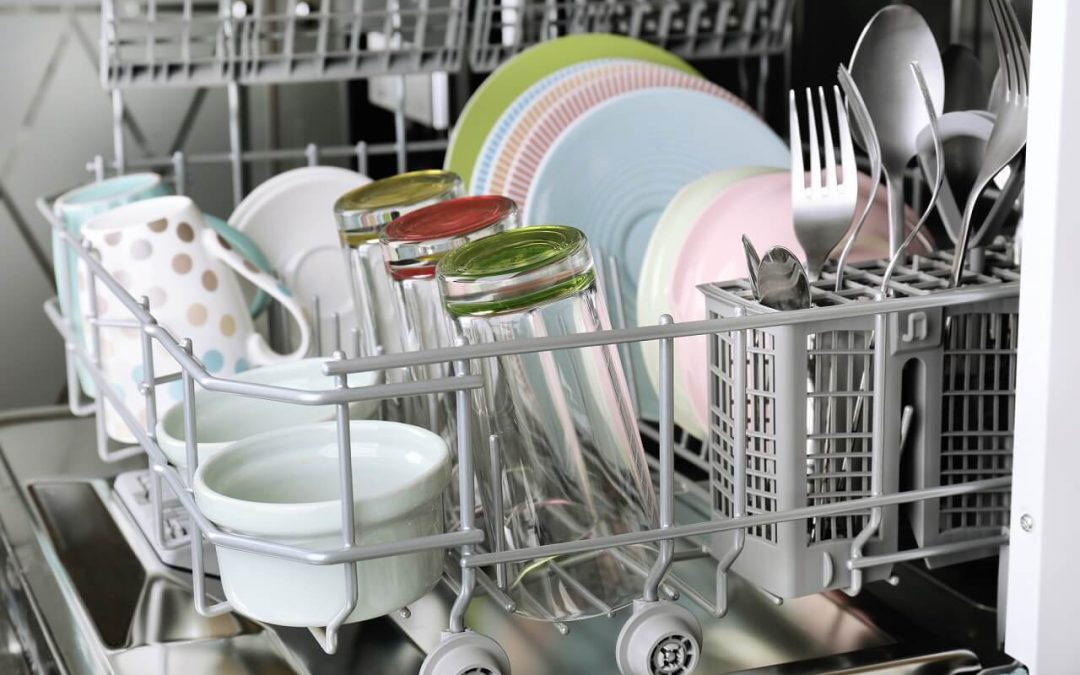Dishwasher Tips
As a homeowner, you’re likely always looking for ways to save money without compromising convenience or quality. Inside your kitchen is a secret weapon for cost-effective living: the dishwasher. With a few simple tweaks to your dishwasher habits, you’ll maintain clean dishes and lower your utility bills. Here are some expert tips to help you save money while using your dishwasher efficiently.
Optimize Your Dishwasher Settings
Modern dishwashers have various settings better suited to different-sized loads and materials. Make sure you’re using the appropriate settings for each load. For lightly soiled dishes, opt for shorter cycles or eco-friendly modes to conserve water and energy. Reserve heavy-duty cycles for pots, pans, and heavily soiled dishes.
Load Your Dishwasher Wisely
How you load makes a big difference in both the cleanliness of your dishes and the efficiency of your dishwasher. Avoid overcrowding your dishwasher, which can obstruct water flow and lead to subpar cleaning. Load dishes strategically by placing larger items like pots and pans along the sides and back to leave space for water to reach all surfaces.
Scrape, Don’t Rinse
Contrary to popular belief, pre-rinsing dishes before loading them into the dishwasher is unnecessary and wastes water. Instead of rinsing every dish, just scrape excess food particles into the trash or compost bin. Most dishwashers can handle moderately soiled dishes without pre-rinsing, saving time and water.
Dishwasher Tips: Use the Right Detergent
Choosing the right detergent for your dishwasher significantly impacts cleaning performance and cost-effectiveness. Look for high-quality detergents that work effectively in your dishwasher’s specific conditions. Too much detergent leads to excess suds and impairs cleaning efficiency. Follow the manufacturer’s recommendations for detergent usage to ensure optimal results.
Maintain Your Dishwasher Regularly
Like any appliance, your dishwasher requires regular maintenance to keep working efficiently. Keep the filter clean by removing food particles and debris after each cycle. Periodically inspect the spray arms for clogs and make sure they can rotate freely. Check the door seal for signs of wear or damage and replace it if necessary to prevent leaks and conserve energy.
Air Dry When Possible
Instead of using the heat-dry option, which consumes additional electricity, allow your dishes to air dry naturally. Simply crack open the dishwasher door at the end of the cycle to let moisture escape and speed up the drying process.
By implementing these simple and effective dishwasher tips, you’ll save money on utility bills while maintaining clean and sparkling dishes. With a little effort and mindfulness, your dishwasher can become a valuable asset for cost-effective living.
Dishwasher Tips FAQs
Is it more cost-effective to hand wash dishes instead of using the dishwasher?
In most cases, using a dishwasher is more water and energy-efficient than hand washing, making it more cost-effective. However, using your dishwasher efficiently by following the tips outlined above to maximize savings is essential.
How often should I clean my dishwasher?
To maintain optimal performance, aim to clean your dishwasher’s filter and interior components once a month. Look for signs of buildup or residue and address them quickly to prevent issues.
Can I use vinegar to clean my dishwasher?
Yes, vinegar is an excellent natural cleaner for dishwashers. Pour a cup of white vinegar into the bottom of an empty dishwasher and run a hot water cycle to remove mineral deposits and odors. Repeat this process periodically to keep your dishwasher clean and fresh.
Should I use the dishwasher’s sanitizing cycle?
The sanitizing cycle can be beneficial for killing bacteria and germs on dishes, especially during cold and flu season. Remember that the sanitizing cycle may consume more energy, so use it selectively when necessary.
My dishwasher leaves spots on my glasses and dishes. How can I prevent this?
Hard water deposits or an overloaded dishwasher often cause spots on dishes and glasses. To prevent spots, use a rinse aid in your dishwasher to help water sheet off dishes more effectively. Confirm that your water softener is functioning correctly, and consider using a water softening system if you have hard water. If spots persist, try adjusting your dishwasher’s detergent dosage or switching to a different detergent formulated for hard water.
I Spy Inspectors provides comprehensive home inspection services to customers in Wisconsin. Contact us to schedule an appointment.

